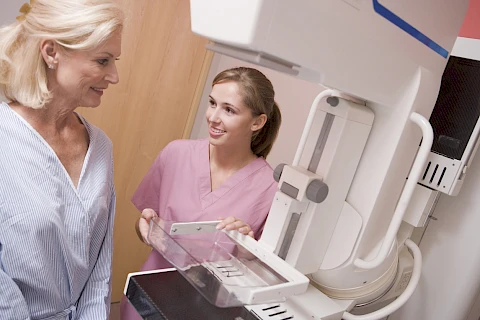
October is Breast Cancer Awareness Month, a time dedicated to raising awareness about breast cancer, its impact, and the importance of early detection. While breast cancer can affect anyone, awareness is especially dire for seniors. The risk of developing breast cancer increases with age, making it necessary for older adults and their caregivers to be informed about the disease. Comprehending the unique aspects of breast cancer in seniors can help save lives.
Breast Cancer in Seniors
Breast cancer is a condition where breast cells grow uncontrollably. It's one of the most common cancers affecting women, and its prevalence increases with age. Seniors face unique challenges when it comes to breast cancer. Health issues related to aging can complicate treatment, and seniors may not always recognize the importance of regular screenings. Older adults might not have access to the same resources as younger individuals, making awareness and education even more important.
Risk Factors for Seniors
As people age, the risk of developing breast cancer grows. Age is a significant risk factor, but it's not the only one. Genetic predispositions, such as mutations in the BRCA1 and BRCA2 genes, can increase the likelihood of breast cancer. Family history also plays a part; having a close relative with breast cancer can elevate risk. Lifestyle factors like diet, exercise, and alcohol consumption can impact risk as well. Seniors should be aware of these factors and discuss them with healthcare providers.
Screening Recommendations
Regular screenings are requisite for early detection. For seniors, this often means scheduling mammograms. Women over 65 should have regular mammograms, but the frequency can vary based on individual health. Follow the guidelines provided by healthcare professionals. Many seniors have misconceptions about the discomfort or necessity of mammograms. However, these screenings can be life-saving. Address any fears and understand that the benefits outweigh any temporary discomfort.
Early Detection Methods
Early detection is paramount for combating breast cancer. Self-examinations can help seniors notice unusual changes in their breasts. While self-exams aren't a substitute for professional screenings, they make a difference in early detection. Technological advancements, such as 3D mammography, have improved detection rates. Regular check-ups with healthcare providers allow for personalized advice and ensure any concerns are addressed promptly.
Support Resources for Seniors
Facing breast cancer can be overwhelming, but seniors don't have to do it alone. Numerous support resources are available in North Carolina. Local support groups provide a space to share experiences and receive emotional support. National resources, such as the American Cancer Society, offer helplines and informational materials. Emotional and psychological support is critical; speaking with a counselor or joining a support group can make a significant difference in coping with the disease.
Seek Support From Senior Helpers Gastonia
Breast cancer awareness and early detection are critical for seniors. Seniors can take proactive steps in managing their health by understanding the risk factors and following screening guidelines. Accessing the available resources ensures that no one faces this journey alone. We encourage seniors and their caregivers to reach out to local resources and stay informed. Senior Helpers Gastonia is here to provide personalized support and assistance in navigating breast cancer awareness and care for seniors in McAdenville, Iron Station, Belmont, and Dallas. Together, we can make a difference in the fight against breast cancer. Contact us today.